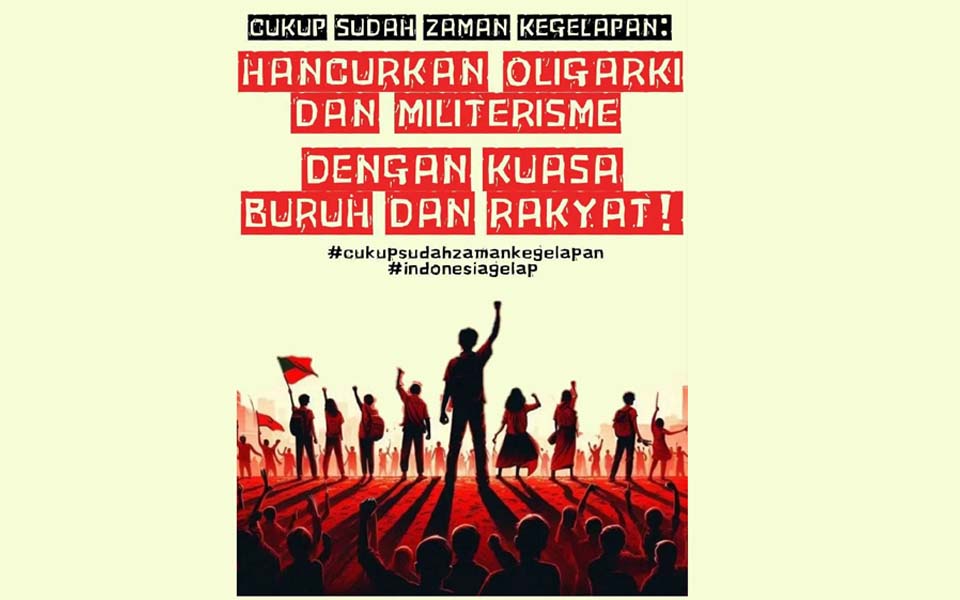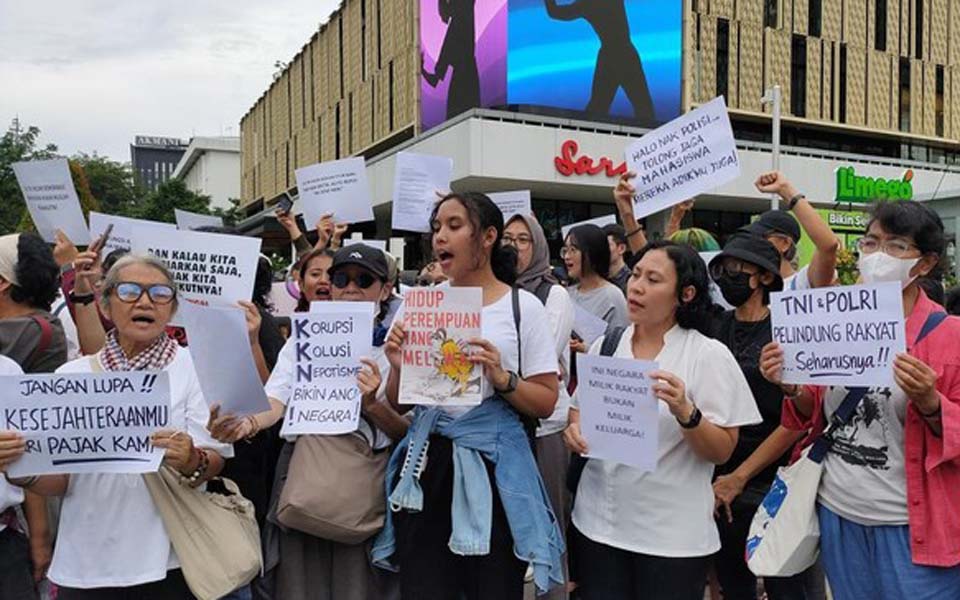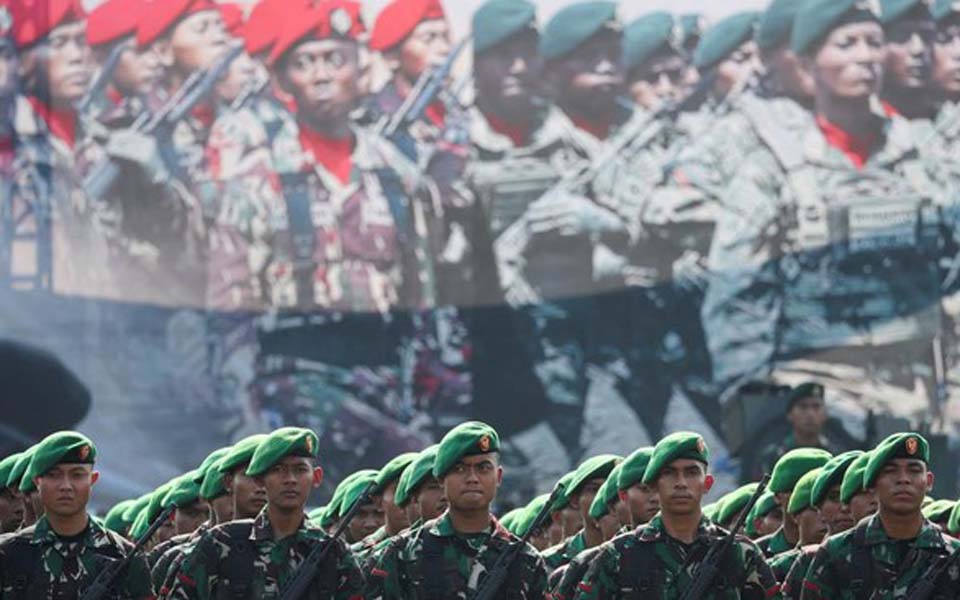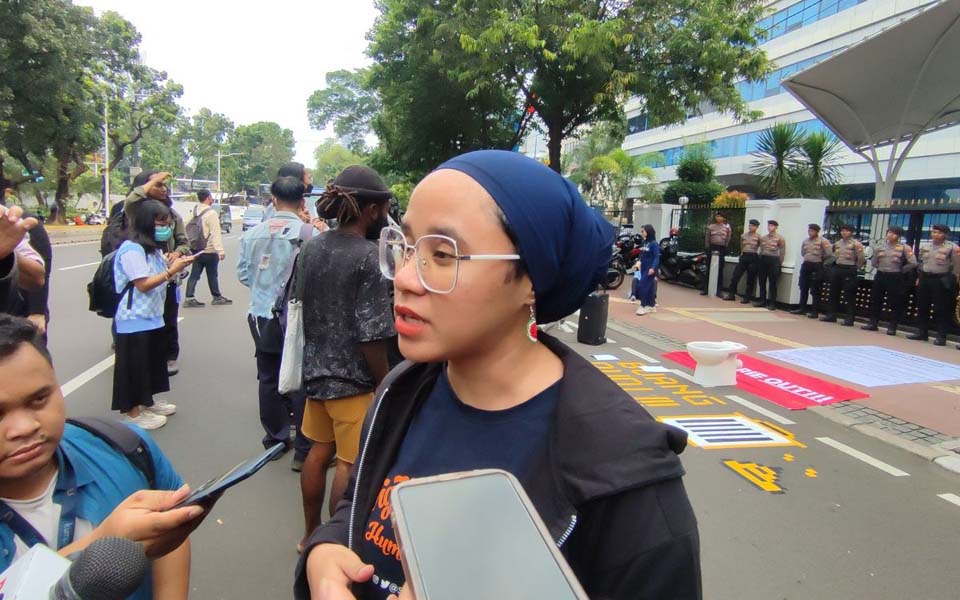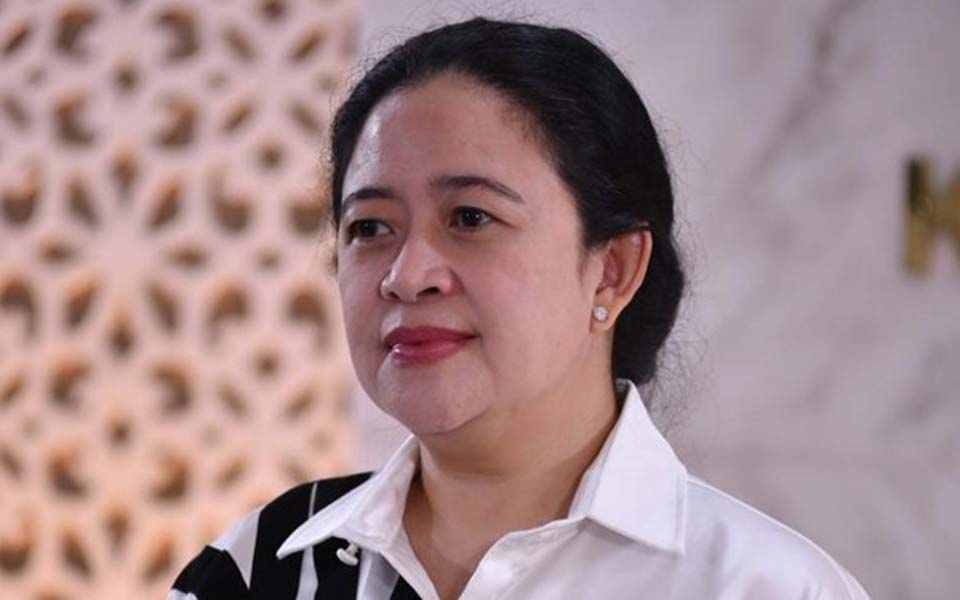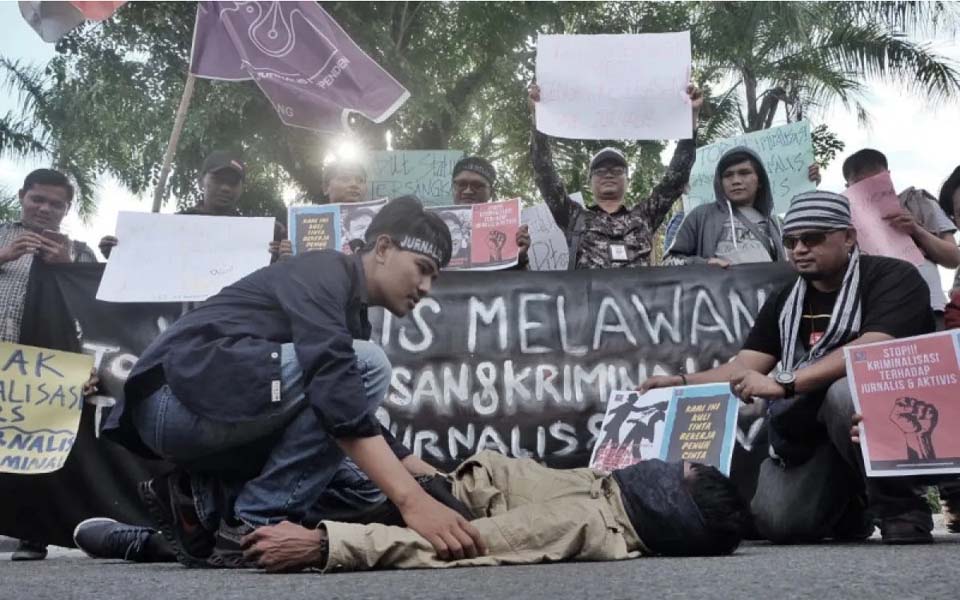Jakarta – President Megawati Sukarnoputri has questioned the motives behind the assumptions which have been made about the organisation of the 2004 general elections which claim they will be susceptible to turmoil and disturbances.
“If there are indeed [people who] want to [create] a disturbance, who are they exactly, these [people] who want to make a disturbance, are they the ordinary people who will participate in the elections, or are there [other parties] who want to upset the people. Why is [the possibility of] unrest [happening] the only thing being talked about”, she said before participants at a 2003 Governor’s Working Meeting at the state palace on Tuesday December 23.
Megawati’s assessment was that if disturbances occur during the 2004 elections, it is certain that the source will not be the political parties which are participating in the elections. This is because the political parties have a strong interest in holding elections which are safe and which run smoothly as a precondition for the establishment of democracy.
“Of the 24 political parties which have passed [the verification process] to [participate] in the 2004 elections, six are political parties which have passed the electoral threshold [by gaining enough parliamentary seats in the 1999 elections]. Is it these six who want to create a disturbance? Or the 18 other new [political parties]? I think this isn’t possible because of course the new parties want [to promote a] good image [of themselves]. Then who and what [groups] are actually going [to cause these disturbances]”, asked Megawati.
She explained that the changes to the electoral system represent the wishes of the people and are demonstrated through six amendments to the 1945 Constitution. Because of this, there is no reason for the people not to ensure that the 2004 elections run safely and smoothly. The people are ready to participate in the elections. “If [there are groups who] want to create a disturbance, don’t just beat around the bush. Go ahead and take them all [into custody]”, she said.
“Essentially, in a country which has been independent for 58 years, the business of leadership is never [completely] finished. If measured in terms of human age, [the country] is already a grandmother, a grandfather. After all, [the nations leaders] were chosen by the people, whoever, that was the people’s choice”, added Megawati.
Megawati, who is also the general chairperson of the central leadership board of the Indonesian Democratic Party of Struggle, said that since the very first elections in 1955 up until the 1999 elections, there has never been any disturbances which have meant that the elections failed.
“The 1999 elections, the preparations for which were only [conducted over a period of] two years, were a success. So what then is the [alleged] deficiency in the [organisation of the] 2004 elections, which have run according to schedule and with adequate preparation”, she said.
Megawati also acknowledged that the organisation of the 2004 elections will be different from previous elections. However these differences are not dramatic. “There is nothing very new. Before [people voted for] the People’s Consultative Assembly (MPR), the People’s Representative Assembly (DPR) and the Regional Representative Assembly (DPD). Before there was only one stage, now there are two. Before the MPR elected the president and vice-president, now [they will be elected] directly by the people” she said.
As well as expressing her conviction that the 2004 elections will run smoothly, Megawati also asked the governors to take a neutral position and safeguard the neutrality of their staff. “I reminded the governors to faithfully ensure and [sincerely] maintain the neutrality of state officials. I truly hope this [will happen]”, she said.
Worst case scenario
Armed forces (TNI) chief General Endriartono Sutarto, said that in preparing for the worst case scenario, that the 2004 elections will be racked with conflict and turn bloody, the TNI is ready to take action if in the end this cannot be avoided.
Following a politics and security working meeting yesterday, Sutarto revealed, “It needs to be understood, in making predictions, the TNI always prepares for the worst case scenario. That is the way we think. If it does occur, then the TNI is ready. If it turns bloody, we will prevent it getting out of hand and as quickly as possible (the problem) will be dealt with”, he said.
Ermaya Suradinata, the governor of the State Security Institute (Lemhannas), said that it is not easy to prevent the 2004 elections from turning bloody. “To prevent this, all of the political parties must collaborate. Without collaboration, there will be friction which will create negative sentiments”, he said.
Sutarto and Suradinata were responding to a statement by army chief General Ryamizard Ryacudu that troops will be deployed if the 2004 elections turn bloody.
According to Lemhannas, the possibility of friction between political parties could arise because of dissatisfaction over the organisation and results of the elections. The dissatisfaction of these political parties will have a broad impact on public life. “Of late, the people have been used by particular groups. It may be that there are clandestine groups who will take advantage of this dissatisfaction”, said Suradinata.
Army chief creating unease
A number of people have indeed expressed regret over Ryacudu’s statement. “This statement will create public unrest and gives the impression of denigrating the efforts which have been made by the political parties to hold peaceful elections in 2004”, said Todung Mulya Lubis from the Centre of Electoral Reform (Cetro) on Tuesday in Surabaya, East Java.
According to Lubis, the statement implies that the TNI are not sincere in wanting to leave the political stage and are making preparations for a return to politics. “If there is really an intelligence report on [potential] disturbances during the elections, it doesn’t need to be revealed publicly. Just take steps to anticipate it”, said Lubis who is of the opinion that Ryacudu’s statement is as if [the TNI] is reconsidering the Sutarto’s statement on the TNI remaining neutral during the 2004 elections.
Military observer Andi Widjajanto from the University of Indonesia and retired General Hasnan Habib also expressed regret over Ryacudu’s statement. According to Widjajanto, statements of this kind simply cannot be issued by the chief of the army or the TNI. “Such statements can only be made by the authorities who were elected by the people, such as the president or a governor”, he said.
Habib said that the statement arises from a way of thinking which is like the New Order [regime of former President Suharto] and is not appropriate in a climate of democracy. This is because the military does not represent a political force, but rather are an instrument of government. “This statement is unwise and indicates a form of thinking which is like the New Order”, said Habib in a discussion on aspects of security in the 2004 elections by the organisation Propatria in Jakarta on Tuesday.
Habib acknowledged however that the TNI cannot possibly just ignore a state of disorder. The 2004 elections represent the first attempt to see if the civilian leadership can be trusted. On the other had, the political parties tend to be engaging in polemics.
Nevertheless, Habib was of the view that extreme statements in the midst of preparing for and holding the general elections are unnecessary. “Perhaps there will be one or two drops of blood, but if [you go around] saying that the elections will turn bloody to the point of [stating you will] deploy thousands of elite troops, that’s going too far”, said Habib.
Certainly the government needs to take steps to prepare a contingency plan in the face of a worst case scenario occurring. But such preparations are needed precisely in the framework of ensuring that a political decision to deal with an state of emergency is made by the authorities who were elected by the people, not the military, and to prioritise non-violent means of resolving such problems.
According to Widjajanto, the legal instruments regulating a state of emergency during an election are Law Number 2/2002 on the National Police Force, Law Number 3/2002 on National Defense and Law Number 23/1959 on a State of Emergency.
In relation to crisis control, Widjajanto also raised the question of the need for the National Election Commission (KPU) to immediately issue detailed regulations in order to prevent administrative and political complications which could arise as a result to the many pit-falls and legal loop-holes in the [regulations on] organising the elections.
Separately, the vice-chairperson of the DPR’s reform fraction, Samuel Koto, warned the public to be careful in interpreting Ryamizard’s statement. “I remind the public not to accept Ryamizar’s statement without thinking it through first”, he said.
“During the New Order period, the issue of [something turning] bloody had two causes. Firstly, it turns bloody because there is political manipulation which of course involves the military. Secondly, it turns bloody because there are actually technical problems, such as neglect on the part of political parties during the campaign and in the mobilisation of the masses, or neglect on the part of the KPU in regulating the campaign schedule”, said Koto. (ely/inu/IDR/win/wis)
[Translated by James Balowski.]









